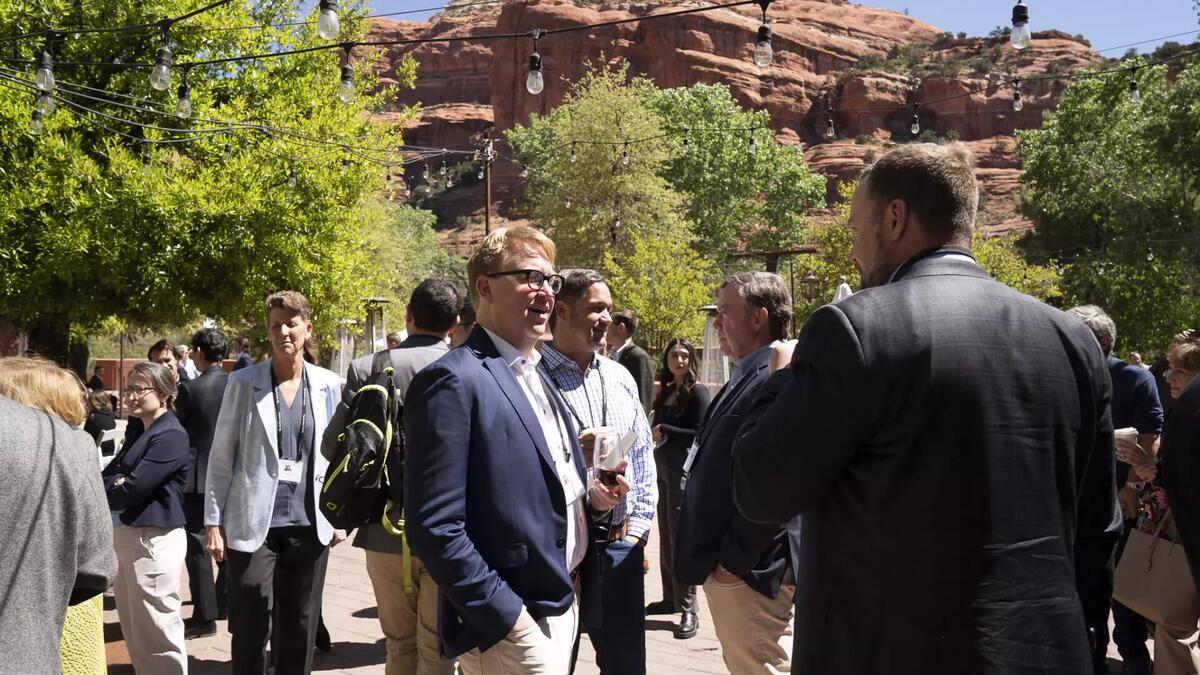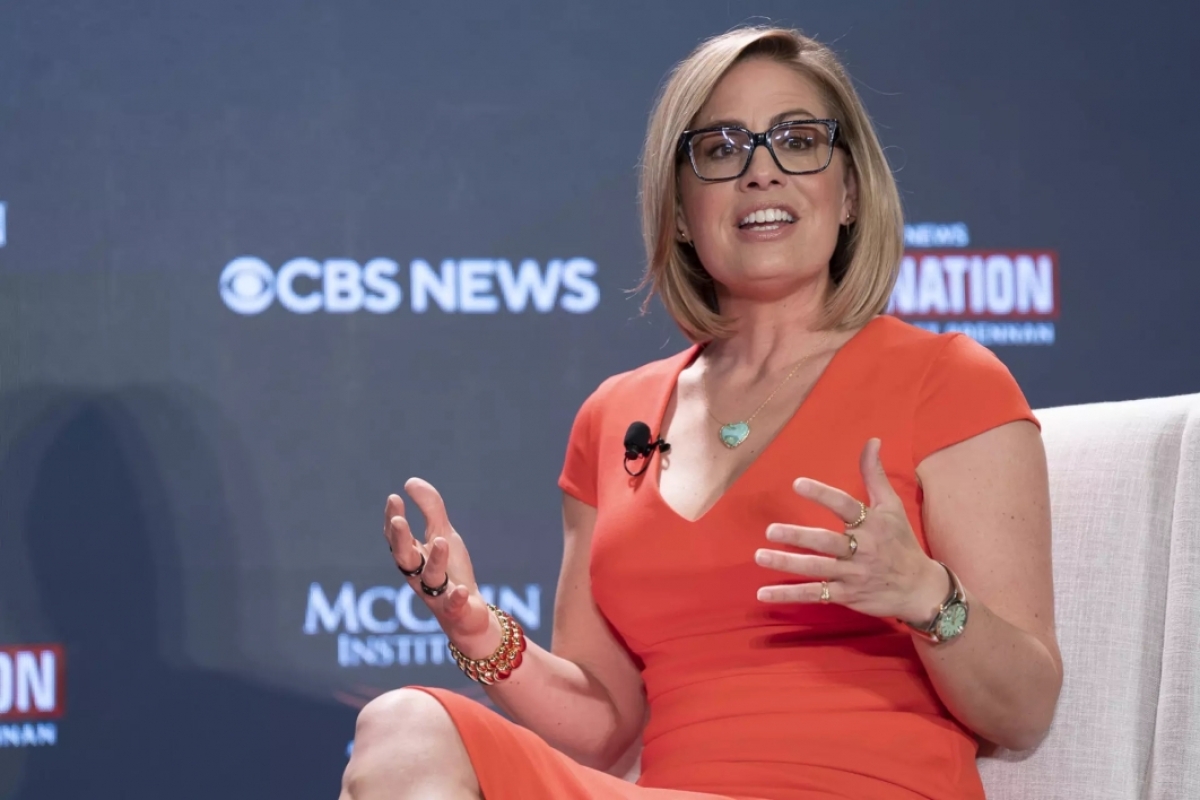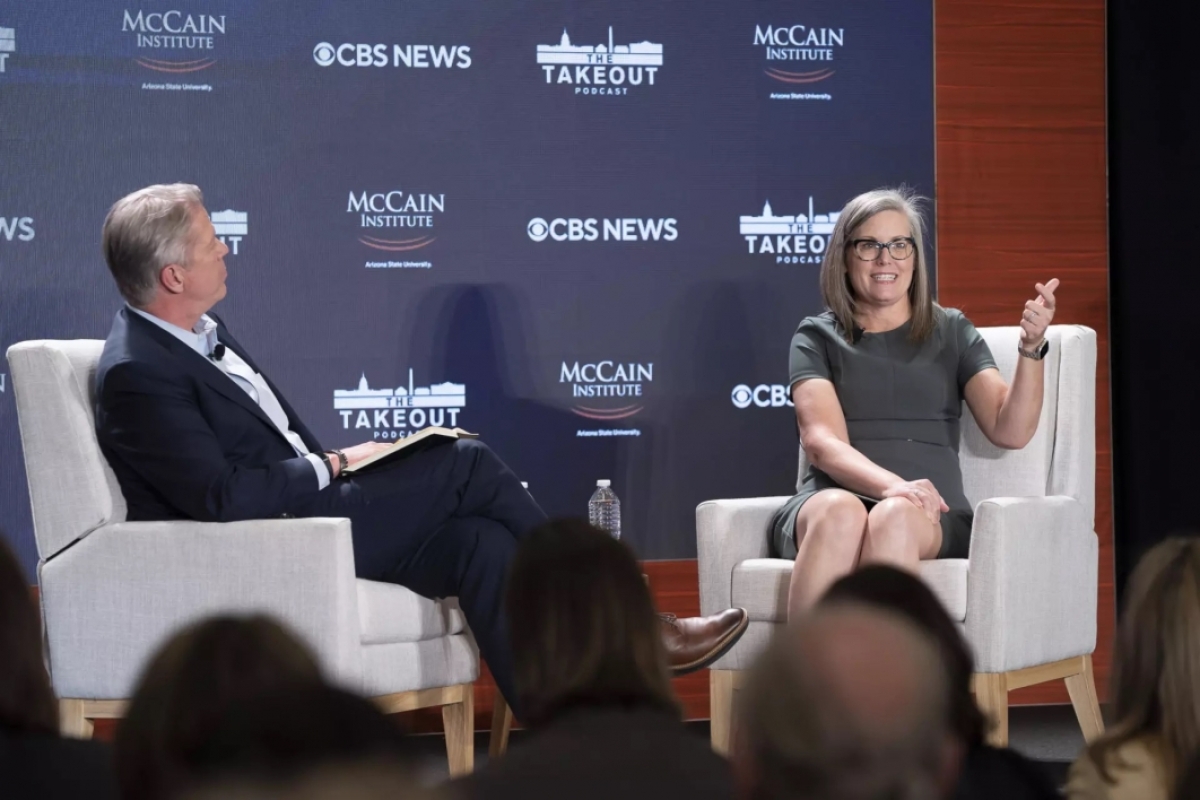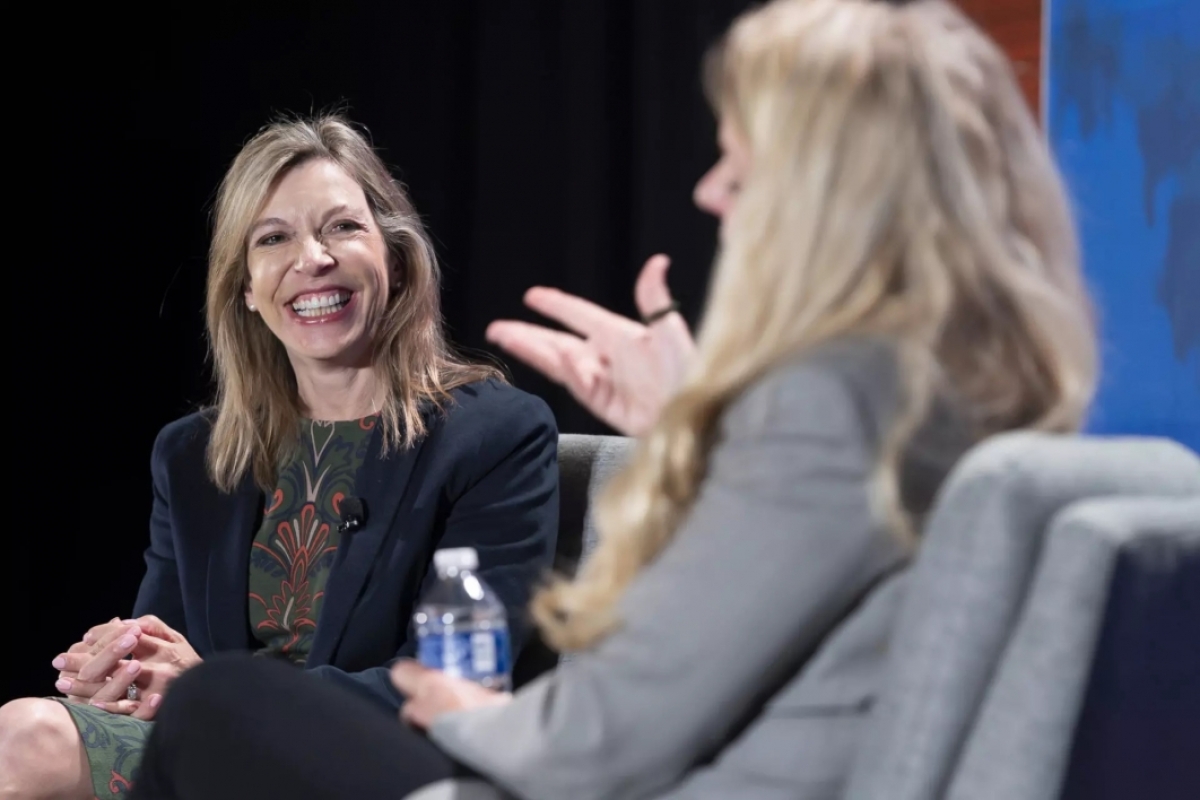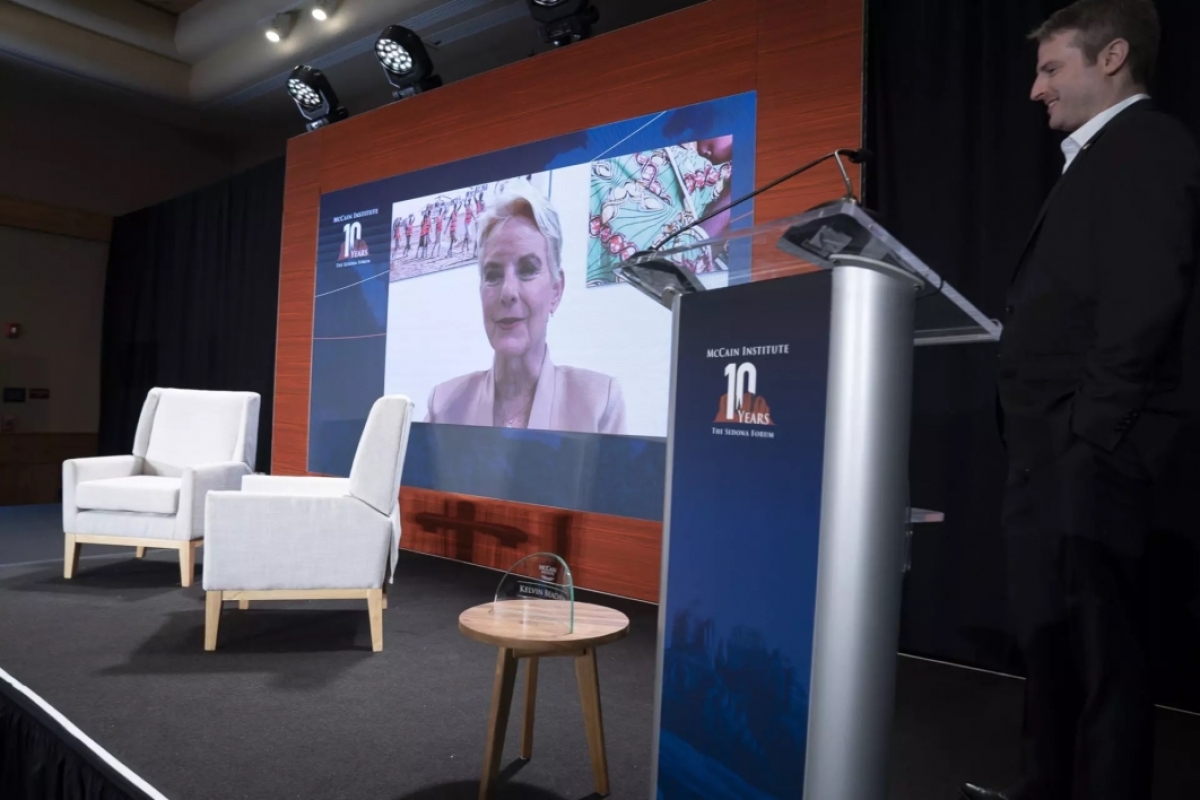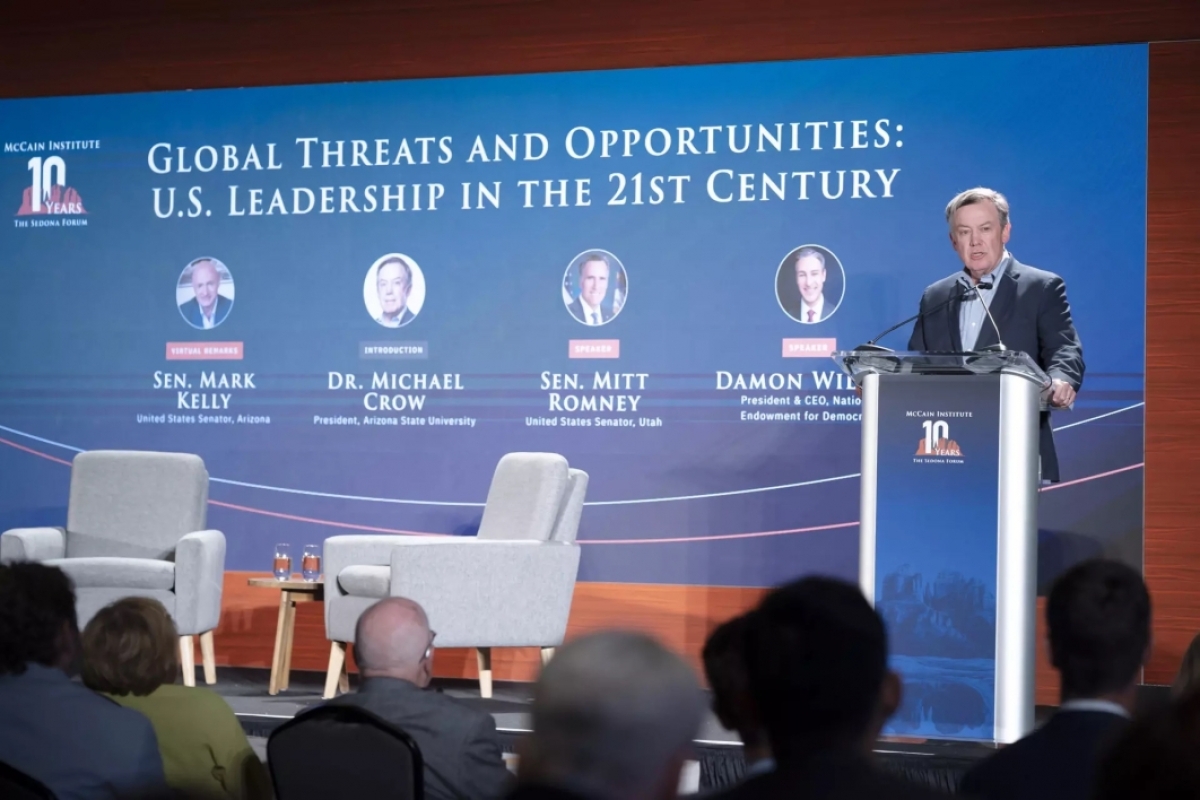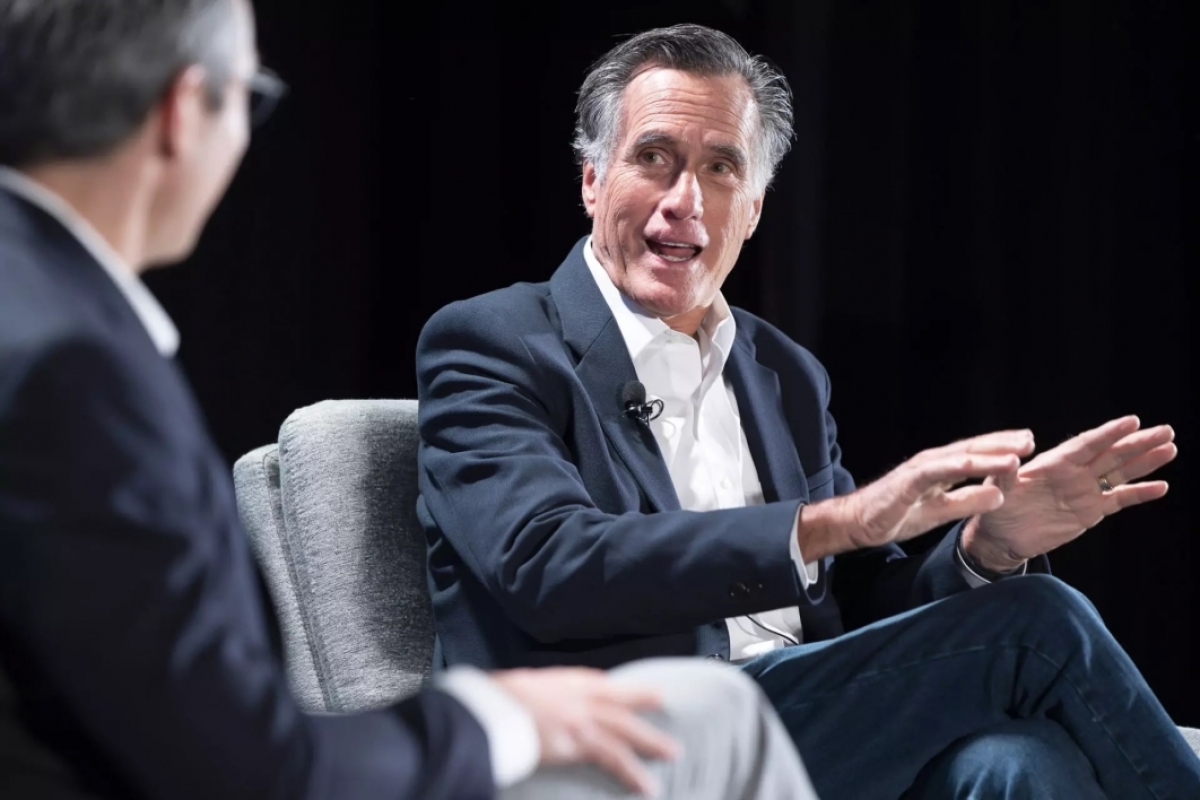At a time where polling continues to show a divided electorate and that a majority of Americans are not in favor of either party’s front-runner for the 2024 presidential nomination, the ASU McCain Institute’s 10th annual Sedona Forum was a beacon of hope for civil discourse, unity and shared purpose.
“As we face increasingly complex challenges and threats to democracy around the globe, this year’s convening of the McCain Institute’s Sedona Forum came at a critical time," said Evelyn Farkas, executive director of the McCain Institute.
The two-day event, held May 5–6 at the Enchantment Resort in Sedona, Arizona, drew lawmakers, journalists, military leaders and business executives from across the country and around the world.
This year’s theme, “Indispensable Power,” was an examination of the diplomatic, military and economic means employed to protect democracy, human rights and the global competitive edge. CBS News served as a broadcast media partner, and POLITICO served as digital media partner.
The weekend panels were a who’s who of national leaders from both political parties, the U.S. military, national media, international diplomats, and McCain Institute experts and leaders.
"The theme for this year’s Sedona Forum reflected Sen. John McCain’s belief that America is an indispensable power in the world,” Farkas said. “We were proud to facilitate thoughtful conversations about how to harness our values and resources to advance freedom and prosperity.”
The forum began Friday afternoon with a welcome from Farkas and Arizona Gov. Katie Hobbs, who described the late Sen. McCain — the institute’s namesake — as someone who “embodied the Arizona way of doing things, a maverick who wasn’t afraid to speak his mind and buck tradition.”
The first event of the forum was an interview with U.S. Sen. Kyrsten Sinema, conducted by Margaret Brennan, CBS News’ "Face the Nation" moderator and chief foreign affairs correspondent. It aired as part of Sunday’s "Face the Nation" episode.
The 40-minute interview focused on negotiations to raise the country’s debt limit, which faces a June 1 deadline, and covered topics ranging from democracy and partisanship to immigration.
“It’s so great to be at a forum that celebrates so much of what Sen. McCain stood for, which is straight talk,” Brennan said. “We do that on ‘Face the Nation’ every Sunday, and we looked at the records — and in the 69-year history, John McCain had the top number of appearances on the broadcast 112 times.”
Sinema acknowledged that is a record she is unlikely to beat, but she said that McCain’s commitment to country over political party is something she does hope to emulate.
“The last floor speech that Sen. McCain gave, he talked about the concern he had with the ‘partisanship at every cost' mentality that had taken over Congress and much of our political system …” Sinema said. “In his decades of service, as you mentioned, he was a man of strong opinions, often voted with his party, but was unafraid to stand alone and break with his party when he thought he was doing something right. But he always did it with dignity and honor and respect of others.
Following the Sinema interview, Hobbs was interviewed by CBS correspondent Major Garrett. They discussed Arizona’s unique place in the election denialism debate, as well as water policy and homelessness.
A dinner on Friday night was punctuated by a conversation with Admiral John Aquilino, the 26th commander of the United States Indo-Pacific Command, the nation’s oldest and largest combatant command. It was hosted by Josh Rogin of the Washington Post.
Saturday’s agenda included former U.S. presidential candidate and current U.S. Sen. Mitt Romney, who was introduced by ASU President Michael Crow. Romney spoke about the threats and opportunities facing the United States in the 21st century.
Individuals and groups were also recognized over the weekend.
Arizona Congressman Juan Ciscomani presented Kelvin Beachum, offensive tackle for the Arizona Cardinals, with the Sedona Forum’s “In the Arena” award for his work in World Vision, a group that works to provide clean water access. The Award for Courage and Leadership was given to the women of Iran and accepted by Lily Pourzand, an Iranian refugee and activist.
Top photo: The Sedona Forum, hosted by the ASU McCain Institute, drew lawmakers, journalists, military leaders and business executives from across the country and around the world to Sedona, Arizona, on May 5–6. Photo by Stephen Jaffe
More Law, journalism and politics

Exhibit uses rare memorabilia to illustrate evolution of US presidential campaigns
After one of the most contentious elections in history, a new museum exhibit offers a historical perspective on the centuries-old American process.“We The People! Electing the American President” had…

TechTainment conference explores the crossroads of law, technology, entertainment
What protections do writers, actors, producers and others have from AI? Will changing laws around name, image and likeness (NIL) eliminate less lucrative college sports programs?And what does…

How to watch an election
Every election night, adrenaline pumps through newsrooms across the country as journalists take the pulse of democracy. We gathered three veteran reporters — each of them faculty at the Walter…
